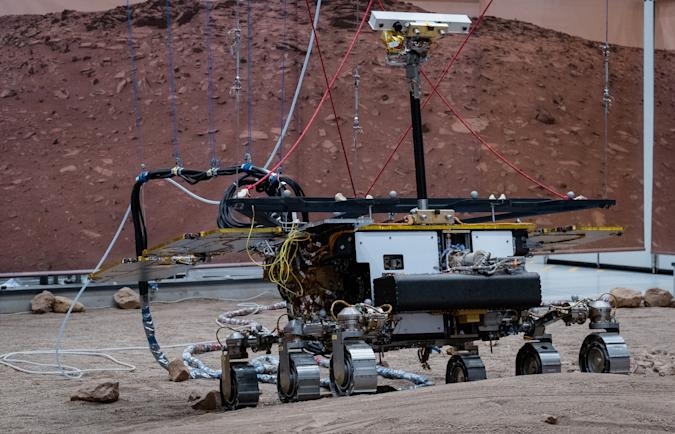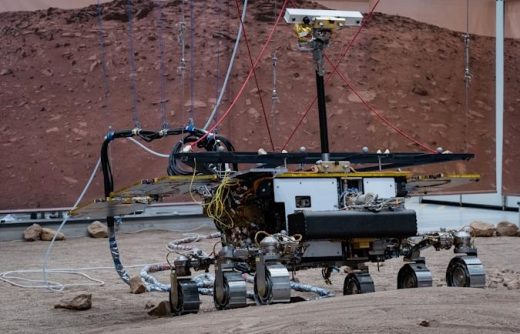The ESA suspends its ExoMars joint mission with Russia
ESA says ExoMars launch this year is ‘very unlikely’
The joint project with Russian space agency Roscosmos will look for signs of life on Mars.


We most likely won’t see the ExoMars mission blast off and start its journey to the Red Planet this year. The European Space Agency has announced that it’s fully implementing sanctions imposed on Russia by its member states following the country’s invasion of Ukraine, and it expects the move to affect its joint projects with Roscosmos. One of those joint projects is ExoMars, which is being developed to search for past life on the Red Planet, as well as to assess its water and atmospheric trace gases.
The ESA is working on the rover that will travel across the Martian surface, while the Russian space agency is in charge of its lander and some instruments the rover will use. In the ESA’s announcement, it said “the sanctions and the wider context make a launch in 2022 very unlikely.” The agency still has to analyze all its options before it can finalize a decision on how to proceed.
ExoMars was supposed to launch in 2018 before it was rescheduled for 2020, but the COVID-19 pandemic and multiple technical failures during testing prompted the space agencies to postpone it yet again. To be able to reach Mars from Earth, a spacecraft has to leave our planet within 10-day launch windows that only occur every two years when the two planets are properly lined up. If ExoMars is missing the this year’s window, then it will definitely be delayed for another couple of years at the very least.
The ESA has also acknowledged that Roscosmos halting Soyuz launches and withdrawing its workforce from the vehicle’s usual launchpad in Kazakhstan will affect some of its projects and payloads. In addition, as The New York Times notes, the war calls the fate of the ISS into question. At the moment, NASA and Roscosmos are working together to maintain the space station. But Roscosmos Director General Dmitry Rogozin recently said that US sanctions against his country could degrade its space program and destroy its partnership with NASA.
He said:
“If you block cooperation with us, who will save the International Space Station (ISS) from an uncontrolled deorbit and fall into the United States or…Europe? There is also the possibility of a 500-ton structure falling on India and China. Do you want to threaten them with such a prospect? The ISS does not fly over Russia, therefore all the risks are yours. Are you ready for them?”
While the US side of the ISS provides life support and power, the Russian side provides propulsion to maintain its altitude. NASA’s human spaceflight program head Kathy Lueders said operations are going well thus far, but that Northrop Grumman and SpaceX have offered to help look for ways to add capability to the US side of the space laboratory.
(40)


